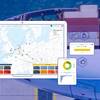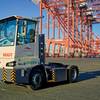Can Company Strategies Enhance Competence?
Capt Pradeep Chawla, Managing Director QHSE & Training, Anglo-Eastern Ship Management Ltd., delivered a theme address at the World Maritime Day symposium on "Shipping's future needs people: Is global maritime education and training on course?". Held at the IMO Headquarters, 4 Albert Embankment, London on 24th Sept 2015 Capt Chawla spoke on "Can Company Strategies Enhance Competence?"
Following is the Edited Abstract of his paper which discusses the strategies and efforts of a Ship Management company, to enhance competence of the seafarers through a comprehensive company training program.
Competence is generally defined as ‘the ability to do something successfully or efficiently’. It is generally accepted that both knowledge and skill are required to be competent.
IMO is the guardian of the maritime industry and has tirelessly worked since 1978 to bring about one common standard of training of the seafarers worldwide.
The purpose of standardizing the training worldwide in our globalized industry is to prevent accidents. There has been a tremendous improvement in safety due to the implementation of the STCW standards; however the goals of zero accidents remains elusive for most companies.
For Anglo-Eastern, as a third party ship manager, the competence of our crew is critical to our very existence.
We believe that the success or failure of any ship manager or ship-owner is primarily based on the competence of the crew operating their ships.
Before the ISM code came into force, Anglo-Eastern had set up a quality assurance system in 1992 under the DNV ‘Safety and Environment Protection’ (SEP) Rules and under the International Ship Manager’s Association Rules for Quality Assurance.
Our conclusion at that time itself was that quality systems could only bring about desired results with highly competent crew. As we set course on our efforts, we realized that besides knowledge and skill, the most critical quality needed to complete a task successfully is the ‘Attitude’ of the person towards the job.
Competence for us, is based on three pillars – Knowledge, Skill and Attitude.
This realization made us embark on a path of creating a holistic company strategy to work simultaneously on strengthening all the pillars of competence. This journey started in 1993.
While STCW 95 brought about a reasonable level of standardization of the knowledge imparted in different countries, it was evident in the early 90’s that there were many areas of on board practical knowledge and skills that can only be improved through a company program of value added training.
The ISM code, Element 6 and STCW Code Reg 1/14 clearly puts the responsibility on the ‘company’ manning the ships with properly qualified crew. Taking into consideration our responsibilities as the ‘company’, our group decided to make ‘Crew Training’ as our critical focus area with a long term commitment to invest continuously in training.
Pease allow me to share our efforts to assist our seafarers to gain higher levels of competence and our efforts to live upto the spirit of the ISM code and STCW convention.
A brief description of our strategies is described below:
1. Select and train our own cadets
We select our cadets directly out of high school, since 1993. We now operate our own training academy for deck, engine and ETO courses. 440 students pass out every year. They are all absorbed within our company. The cadets are selected on the basis of our own examinations that cover many aspects in addition to academic capability including detailed psychometric evaluation. Over 5000 applications are received each year.
2. Establish strict recruitment standards for all ranks
Recruitment standards are common to all nationalities and are based on our own databank of over 20,000 questions. Besides knowledge testing, assessment is carried out using navigation, engine and cargo simulators.
3. Operate our own training centres in locations where we have significant recruitment numbers
The training centres based in India, Ukraine, Philippines and China, run over 50 courses that address knowledge or skill gaps identified in internal or external audits and inspections or based on incident and near miss feedback. Over 21,000 seafarers out our pool of 25,000 seafarers attend courses each year in our company training centres. Besides knowledge and skill based courses, the main focus is on soft skill courses like leadership, communication, interpersonal relationships etc. The training centres are equipped with all modern simulators and all shipboard equipment including generators, purifiers, OWS, turbo chargers, pumps, ballast water treatment plants etc.
4. Train continuously on shore and on board
Besides shore based training, the company has a pool of over 30 Masters and Chief Engineers who conduct on board training. Over 500 boardings are accomplished each year.
5. Use modern training systems like e-learning
Company has its own e-learning portal since 2006 and besides using training content from third party vendors, we produce our own safety movies and computer based training. We are probably one of the very few shipping companies using a virtual classroom and a live student feedback system.
6. Continuous Competency Assessments
Effectiveness of shore-based and on-board training is checked through an in-house competency management system which is again web-based. The system includes competencies defined in STCW and industry standards like TOTS, SIGTTO etc. in addition to company defined critical competencies for each rank.
7. Continuous improvement of company training programs
The training centres and college are immediately made aware of every incident on board our ships. Trends or gaps identified during internal audits, inspections and near misses are also passed to the teachers. This continuous feedback allows the teachers to continuously enhance the content and quality of their courses.
8. Concentrate on the human element at all times
Is all this focus on training enough to prevent all accidents?
The truthful answer is ‘No’.
Training and quality assurance system and monitoring regulations like PSC, SIRE inspection, audits, surveys etc. are a framework that help in reducing accidents. However ‘human performance’ is strongly affected by attitude towards the job. The attitude or behavior of a person is a very complex subject that probably deserves a longer discussion.
I would like to share with you, though my personal model on human performance.
As a company we strive continuously to avoid doing anything that affects our seafarer’s behavior in a negative way.
We strive to do the entire education and training from cadet all the way to Class 1, Master’s certificates of competency in-house in our very own college and training centres.
You may well ask, why is Ship Management Company trying to take the role of a maritime college?
We feel that there are grave, fundamental and systemic issues with maritime colleges in most countries in the world today.
Until the 1960’s, ship-owners generally employed crew from their own countries and the colleges
in the maritime nations were well funded and supported by the governments.
With the advent of flags of open registry and the freedom to employ seafarers from any country, the axis of the crew supplying nations shifted out to the emerging economies. Colleges in these countries were neither well-funded nor supported by the governments.
The knowledge-base of the well-established maritime colleges in the advanced maritime nations did not get transferred to the colleges in the crew supply nations.
The most critical and fundamental issue is that salaries of teachers in the maritime colleges world-wide has not kept pace with the rise of salaries out at sea.
As a result, the situation with availability and quality of teachers in maritime colleges worldwide is extremely grave. Colleges face great difficulty to attract experienced seafarers to take up teaching jobs.
Looking at the scenario in all the crew supplying nations, we reached the conclusion that we had to take this responsibility on our own shoulders.
While we work with international associations of all types, like GlobalMet, Intertanko, BIMCO, ISF, NI etc. in our efforts to contribute in the field of education, training and human factors affecting the overall competence of the seafarer; we believe that there is an urgent need for the maritime industry to focus on various elements of crew competence. It must further be appreciated that considering the rapid advances in technology, there is a need for additional set of competences as compared to the decades gone by.
The industry also needs to focus on the workload of the seafarers, due to regulatory burden, administrative burden and the ship-port interface issues.
Have these strategies succeed or failed for our group? I leave this for you to decide by sharing these figures.
We believe, from our own experience, that the day to day connections between people operating ships and those teaching results in enhancing the competence of the seafarers.














